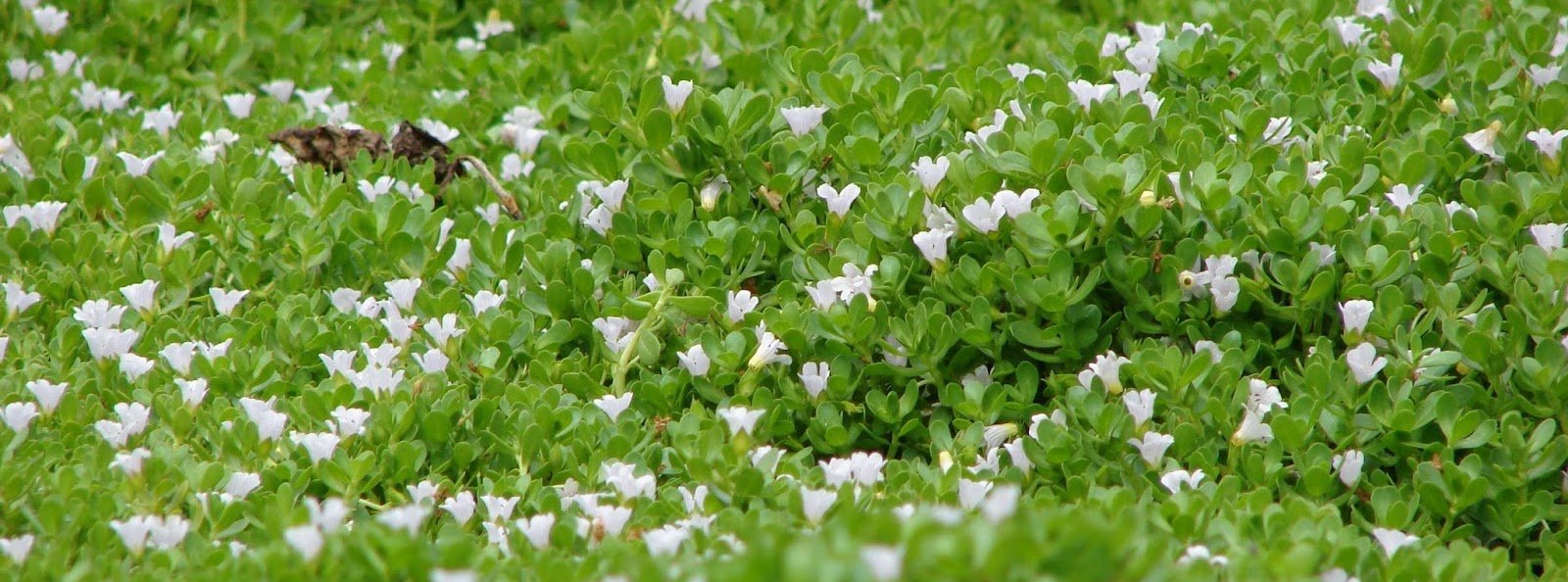Must Reads
How I Became Interested In Bacopa Monnieri
During the course of my journey with nootropics, one distinction keeps popping up.
The distinction is between nootropics that modulate neurotransmitters verses nootropics that affect underlying brain structure. These categories are not mutually exclusive; some nootropics do both.
Nootropics That Modulate Neurotransmitters
Boosting a neurotransmitter results in short-term gains and then compensation. The human brain adapts to the increased neurotransmitter levels. A "new normal" is established. Thus, altering neurotransmitter levels is often a losing strategy for healthy adults.
But consider neurogenesis. Neurogenesis is the process by which neurons are created from progenitor and stem cells, and it affects actual brain structure. For example, neurogenesis populates your hippocampus with new neurons.
It's this observation about the difference between manipulating neurotransmitters and altering brain morphology that led me to Bacopa monnieri. One big caveat here is that this distinction is muddied by the fact that often altering neurotransmitters has downstream effects on brain structure. For example, increasing norepinephrine promotes neurogenesis 10, altering hippocampal structure. But I think the spirit of the distinction survives this objection.
Quick Facts
- Though Bacopa is a medicinal Ayurvedic herb used for various maladies, it is best known as a nootropic (cognitive enhancer).
- Several randomized, double-blind, placebo-controlled trials support Bacopa monnieri's cognitive enhancing effects.
- Bacopa monnieri may have therapeutic potential for Parkinson's disease6 and epilepsy 7.
- Long-term Bacopa treatment (6 weeks +) promotes dendritic branching in animal models.
- Bacopa has neuroprotective, antioxidative, and adaptogenic effects.
Bacopa Monnieri and Memory Enhancement
Bacopa monnieri's claim to fame is that it enhances memory. The only caveat is that it takes six weeks of Bacopa treatment for these benefits to manifest.
Memory enhancement is a real feat. There are only a handful of supplements or herbs that enhance memory. The existence of psychostimulants is a testament to the fact that it is not difficult to artificially increase motivation and focus in humans. But memory? It is notoriously difficult to reproducibly improve memory in humans.
In addition to Bacopa monnieri, I count nicotine and CDP-choline as other memory enhancers due to their cholinergic effects.
But what makes Bacopa monnieri extract really compelling is its ability to promote dendritic branching 1. Before we launch into a discussion of Bacopa and dendritic morphology let's review the basics.
The Popularity of Herbal Medicine
Herbal medicine has grown in popularity in North America and Europe in the last few decades. In 2008, the NIH reported that 40% of adults used complementary and alternative medicine in the last year.
Ecology
Bacopa monnieri is a creeping perennial herb. It has small oblong leaves and purple flowers. It likes to live in warm wetlands and is native to India, Australia, Europe, Africa, Asia, and North and South America. The entire plant can be used medicinally.
Ayurvedic Medicine
Unlike addictive and potentially neurotoxic psychostimulants, Bacopa monnieri nourishes rather than depletes neurons. Ancient Vedic scholars allegedly used Bacopa to help memorize scriptures and sacred hymns. Bacopa monnieri is found in countless Ayurvedic preparations used promote cognitive function. In Ayurvedic medicine, Bacopa is a medicinal herb where it is known as "Brahmi", after Brahma, the Hindu creator God.

Bacopa Increases Dendritic Branching
First, what's a dendrite? A dendrite is:
a short extension of a neuron which receives inputs from other nerve cells at synapses transmitted to the cell body.
A neuron is just a brain cell or nerve cell. A synapse is a gap that neurotransmitters diffuse across.
Dendrites are branched and short, unlike axons which are long and unbranched. In the figure below the soma is the cell body of a neuron.

Vollala and colleague asked whether Bacopa monnieri extract could affect brain morphology in adult rats 1. (In biology, morphology refers to the structural features of an organ or tissue.)
Vollala found that Bacopa increased dendritic intersections and branch points along the length of both apical and basal dendrites. This effect only manifested after 6 weeks of Bacopa treatment. At the 2 week mark, no effect was observed. This underscores how nootropics take time to work.
How should we interpret these changes in dendritic morphology? What if they are undesirable, abnormal changes? The authors considered this possibility and addressed it with learning and memory tests.
It turned out that changes in dendritic morphology also corresponded with improvements in spatial learning and memory retention. Moreover, environmental enrichment alone enhances dendritic branching in the hippocampus of rats. Hence, a crude interpretation would be that Bacopa recapitulates the beneficial effects of environmental novelty.
Mechanism of Action
Neuroprotective Effects of Bacopa
Anabrasi and colleagues evaluated the neuroprotective effects of bacoside A against oxidative stress in rodents exposed to cigarette smoke 2. Treatment with aqueous bacoside A increased brain glutathione and increased the activities of antioxidant enzymes (e.g., superoxide dismutase and catalase).
Jadiya et al. tested the effects of Bacopa monnieri in a C. elegans model of Parkinson's disease 3. The authors found that Bacopa monnieri extract produced a 3.5-fold reduction in alpha-synuclein protein aggregation and a 2.7 fold reduction in 6-hydroxydopamine-induced damage. (alpha-synuclein is a protein in the brain that helps regulate the release of dopamine and cluster synaptic vesicles. It is a implicated in Parkinson's disease).

Caption: an attractive human of the female sex, wholly unrelated to bacopa and the intricacies of its neurobiology
Saini et al. found that Bacopa monnieri extract reversed memory impairment in a rodent model of neurodegenerative disease 4. The authors induced memory impairment by treating rodents with Colchicine. Colchicine is a microtubule-disruptor that precipitates oxidative stress and cell death in various brain regions. Colchicine increased transfer latency by 64%, whereas Bacopa monnieri extract improved latency by 62%.
Serotonin
Bacopa increases expression of the serotonin transporter (SERT)8, tryptophan hydroxylase activity, and serotonin levels.
Stress
- Bacopa reduces HSP70 expression9, which is a biomarker for physiological stress.
- Bacopa treatment also reduces oxidative stress due to heavy metals. For example, Bacopa reduced oxidative damage due to mercury in brain tissue.
- Bacopa protects against oxidative stress to dopaminergic neurons in a variety of experimental models of Parkinson's disease. Dopaminergic neurons are particularly sensitive to oxidative stress. Bacopa also has antidopaminergic effects in the striatum and prevents surges in dopamine at low doses. This observation makes one wonder whether Bacopa might be useful for schizophreniform disorders.
- Bacopa decreases neuronal death in animal models of Alzheimer's disease.
Acetylcholine
Bacopa reverses amnesia induced by the anticholinergic drug scopolamine. One explanation for this effect is Bacopa's activity as an acetylcholinesterase inhibitor. Yet, some researchers have argued this effect is too small to be clinically meaningful.
Neuroinflammation
Bacopa suppresses inflammation in the central nervous system. Bacopa treatment reduced IL-1Beta and TNF-alpha with three months of treatment, but failed to affect IFN-gamma. These anti-inflammatory effects are attributed to the bacosides in Bacopa monnieri.
Anxiety and Depression
One double-blind, placebo-controlled study noted that Bacopa monnieri reduced anxiety and depression in humans at 300 mg/day in older adults. However, in the same study, a higher dose of Bacopa failed to produce a statistically significant effect.
Physiology
Bacopa may decrease blood pressure and increase cerebral blood flow. Dark chocolate has similar effects on cerebral blood flow. These effects are related to enhanced nitric oxide (NO) release. NO is a gaseous neurotransmitter and potent vasodilator.
One study noted that Bacopa increased serum thyroid hormone (T4) by 42% without affecting T3.
Adverse Effects of Bacopa Monnieri
What about Bacopa monnieri's adverse effects? It doesn't matter how effective a treatment is if the side effects are intolerable.
Fortunately for us, Bacopa monnieri extract has minimal adverse effects at typical dosages.
The most common complaints are:
- increased stool frequency (33%)
- gastrointestinal cramps (18%)
- nausea (20%).
Chemical Composition
Most people seem comfortable ingesting plant-derived supplements, if their rising popularity is any indication. I feel cautious about plant or herbal extracts because they are usually a blend of thousands of naturally-occurring compounds. Drugs are comforting because they are pure substances - you know exactly what you're taking.
On the other hand, plant extracts afford added therapeutic benefits. Pharmaceutical companies are always trying to identify the active agent in plant extracts so that they can patent it. But what if the therapeutic effects of a plant extract arise from the blend of compounds?
The composition of Bacopa monnieri has been extensively studied.
The biologically active constituents are bacoides. Bacosides comprise a family of 12 compounds. In one sample of Bacopa monnieri, Rastogi et al. reported the following bacoside profile 5:
- bacopaside I (5.37%)
- bacoside A3 (5.59%)
- bacopaside II (6.9%)
- bacopasaponin C isomer (7.08%)
- bacopasaponin C (4.18%)
Cognitive Enhancing Effects of Bacopa in Humans
Nothing beats studies in actual humans; animal models can only take you so far.
Results from double-blind, placebo-controlled trials in humans have been promising.
Here's some data from Morgan's study on the cognitive effects of Bacopa in older adults with mild cognitive impairment.

Kumar and colleagues conducted a similar study, except he recruited healthy adults (medical students). His data is more relevant to healthy individuals seeking enhancement rather than mitigation of neurodegenerative disease.
In Kumar's study, Bacopa resulted in a statistically significant improvement in the logical memory and digit span backwards tests but failed to have an effect on an of the other cognitive tests.

Final Thoughts
Bacopa is among my favorite nootropics. I'm a big fan of nootropics that may prove to enhance underlying brain structure (rather than only manipulating neurotransmitter levels). Some key things to note about Bacopa is that it takes 6 weeks to work. Bacopa's beneficial effects on dendritic branching mimic the effects of environmental novelty and environmental enrichment.
Citations
-
Vollala VR, Upadhya S, Nayak S. Enhanced dendritic arborization of hippocampal CA3 neurons by Bacopa monniera extract treatment in adult rats. Rom J Morphol Embryol. 2011;52(3):879-86. ↩
-
Anbarasi K, Vani G, Devi CS. Protective effect of bacoside A on cigarette smoking-induced brain mitochondrial dysfunction in rats. J Environ Pathol Toxicol Oncol. 2005;24(3):225-34. ↩
-
Jadiya P, Khan A, Sammi SR, Kaur S, Mir SS, Nazir A. Anti-Parkinsonian effects of Bacopa monnieri: insights from transgenic and pharmacological Caenorhabditis elegans models of Parkinson's disease. Biochem Biophys Res Commun. 2011;413(4):605-10. ↩
-
Saini N, Singh D, Sandhir R. Neuroprotective effects of Bacopa monnieri in experimental model of dementia. Neurochem Res. 2012;37(9):1928-37. ↩
-
Rastogi M, Ojha RP, Devi BP, Aggarwal A, Agrawal A, Dubey GP. Amelioration of age associated neuroinflammation on long term bacosides treatment. Neurochem Res. 2012;37(4):869-74. ↩
-
Jadiya P, Khan A, Sammi SR, Kaur S, Mir SS, Nazir A. Anti-Parkinsonian effects of Bacopa monnieri: insights from transgenic and pharmacological Caenorhabditis elegans models of Parkinson's disease. Biochem Biophys Res Commun. 2011;413(4):605-10. ↩
-
Paulose CS, Chathu F, Khan SR, Krishnakumar A. Neuroprotective role of Bacopa monnieri extract in epilepsy and effect of glucose supplementation during hypoxia: glutamate receptor gene expression. Neurochem Res. 2008;33(9):1663-71. ↩
-
Charles PD, Ambigapathy G, Geraldine P, Akbarsha MA, Rajan KE. Bacopa monniera leaf extract up-regulates tryptophan hydroxylase (TPH2) and serotonin transporter (SERT) expression: implications in memory formation. J Ethnopharmacol. 2011;134(1):55-61. ↩
-
Rai D, Bhatia G, Palit G, Pal R, Singh S, Singh HK. Adaptogenic effect of Bacopa monniera (Brahmi). Pharmacol Biochem Behav. 2003;75(4):823-30. ↩
-
Jhaveri DJ, Mackay EW, Hamlin AS, et al. Norepinephrine directly activates adult hippocampal precursors via beta3-adrenergic receptors. J Neurosci. 2010;30(7):2795-806. ↩
